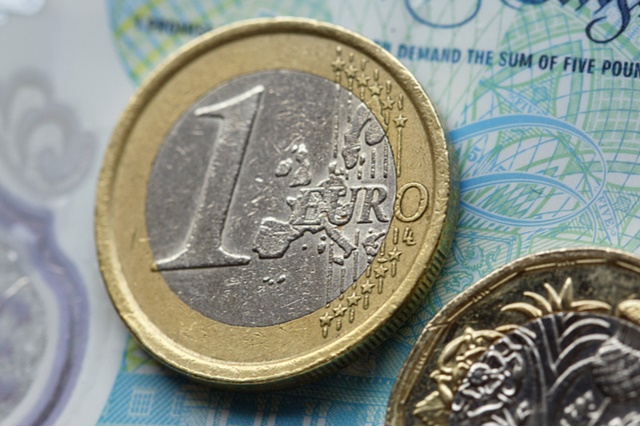GBP/EUR Exchange Rate Fluctuates as UK Economy Flatlines in February
The Pound Euro (GBP/EUR) exchange rate is rangebound as GDP growth for the UK shows a stagnant economy for February.
At time of writing the GBP/EUR exchange rate is around €1.1353, relatively unchanged from this morning’s levels.
Pound (GBP) Undermined by Zero Growth in February
The Pound (GBP) remains fairly quiet this morning after disappointing GDP growth data for February. Against expectations of a modest 0.1% expansion, which would have marked the second consecutive month of growth, came in at 0%.
The Office for National Statistics (ONS) revealed that the UK economy flatlined in February, with industrial action believed to be the biggest driver in negative growth. With both teachers and civil servants staging strikes in February, the economic impact was huge. Weak industrial output also weighed heavily.
Darren Morgan, Director of Economic Statistics at ONS, has attributed the dip in economic activity on the impact of the industrial action. He added:
‘Construction grew strongly after a poor January, with increased repair work taking place. There was also a boost from retailing, with many shops having a buoyant month.
‘These were offset by the effects of Civil Service and teachers’ strike action, which impacted the public sector, and unseasonably mild weather led to falls in the use of electricity and gas.’
Looking ahead, the Pound could come under increased pressure with a speech from the Bank of England (BoE) Chief Economist Huw Pill. After the disappointing GDP growth data, the central bank could be more cautious on raising interest rates further. If Pill hints at a possible pause, Sterling could slip.
Further afield, key employment data could weigh on the Pound as the unemployment rate and average earnings will be released next Tuesday.
Euro (EUR) Supported by Strong Industrial Production
Meanwhile, the Euro (EUR) is failing to capitalise on a stuttering Pound despite stronger-than-expected industrial production in the Eurozone. Against expectations of a 1% increase MoM, industrial production grew by 1.5%, marking a second consecutive month of growth.
The steadily improving sector provides a welcome boost to the Euro area as it would suggest that industrial activity in the first quarter of 2023 has rebounded after a poor Q4. Lending further optimism is that GDP growth in the Eurozone could also be on the up.
Elsewhere, elevated interest rate hike bets could also be keeping the Euro afloat. A speech from European Central Bank (ECB) policymaker Robert Holzmann yesterday lent some credence to the possibility of another 50bps rate hike. With the inflation outlook remaining high, Holzmann is confident for another aggressive rate bump:
‘The persistence of inflation currently argues for another 50 basis points (in May). If we do not act vigorously enough now, the inflation problem will only increase and we will end up being even stricter.’
Looking ahead, the Euro could be left exposed to market sentiment amid a lack of economic data to see out the week. Glancing to next week’s session, the economic sentiment index for both the Euro area and Germany could provide a modest impact. Final inflation reading for the Eurozone could also see movement if the figure differs from preliminary readings.


Comments are closed.